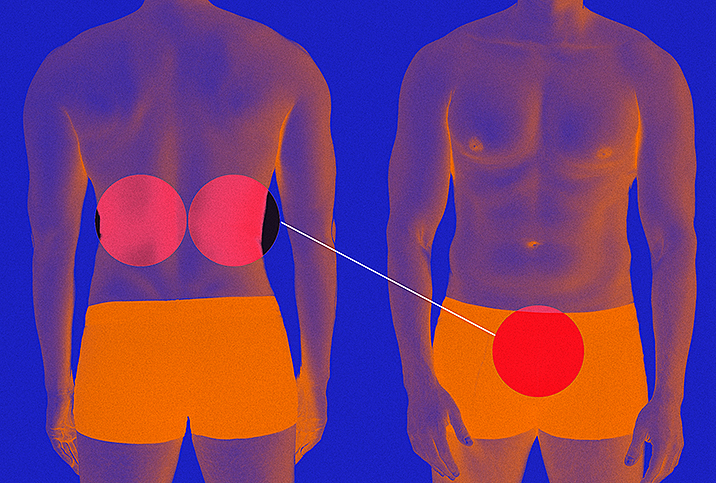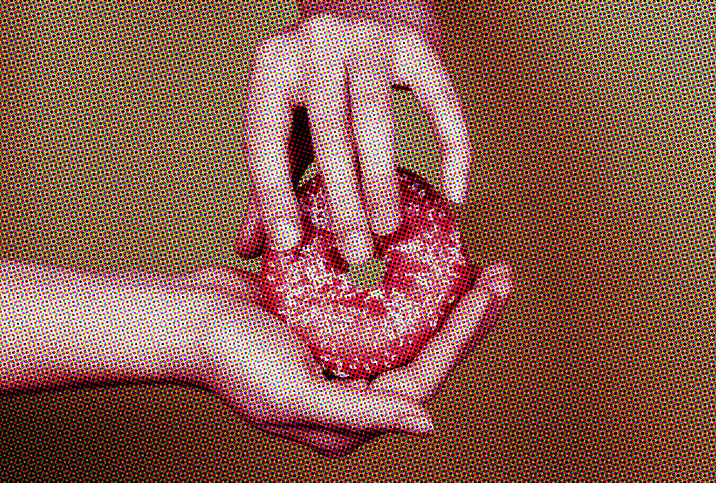The Many Ways Kidney Disease Can Diminish Erectile Function

Although kidney disease is one of the most common conditions in the United States, about 90 percent of people are unaware they have it until it reaches what's considered "end-stage kidney failure," according to Northwestern University chief of nephrology Susan Quaggin, M.D.
"It's one of those 'silent diseases' that doesn't appear until it's progressed really far," she said.
She noted a 2015 study that reported up to 70 percent of men with end-stage kidney failure experienced some level of erectile dysfunction (ED), largely due to the connection between healthy kidneys and a healthy body.
Kidney disease causes look like ED causes
"It is very common for men with chronic kidney disease to have erectile dysfunction, and there are several causes that can link the two to one another," said Tracy Gapin, M.D., a urologist and the founder of the Gapin Institute in Sarasota, Florida.
He explained that patients with chronic kidney disease typically have an altered endothelial function, meaning the lining of the blood vessels does not relax and dilate normally to support the normal blood flow that causes erections. Endothelial dysfunction can take years to manifest, and in most men is the result of lifestyle choices: poor diet, little exercise and a lack of awareness.
A secondary factor is nitric oxide, molecules that cause muscles within the blood vessels to relax, which allows for easier blood flow. If the muscles in the penis can't relax, vessels are unable to dilate and the penis can't fill with blood to create a firm erection. Healthy kidneys produce adequate nitric oxide, while malfunctioning kidneys lead to less-than-optimal nitric oxide production.
Conditions such as diabetes and cardiovascular disease often run in tandem with blood flow issues, which are precursors to kidney disease.
"Kidney disease is a concurrent issue and it shows issues going on with the circulatory system, which ends up affecting erections, as well," said Ariel Moradzadeh, M.D., a urologist at Cedars-Sinai Medical Center in Los Angeles.
Bodily imbalances
Hormonal imbalances—low testosterone is one that may impact erectile function—are also an important link between kidney issues and ED, according to Quaggin.
She explained that in addition to balancing certain fluids within the body, the kidneys also produce hormones that create red blood cells and bone marrow. When the kidneys aren't functioning properly, red blood cells aren't as numerous as they need to be, leading to anemia, which has been linked to ED. This link is potentially due to the delicate balance of iron in male bodies, specifically the need to manage energy production, among other functions.
"Kidney disease by itself amplifies other issues," Quaggin said.
Gapin added that male kidney disease patients tend to have low testosterone for two reasons. First, Leydig cells, which produce testosterone in the testicles, can become altered due to disturbances within the hypothalamic-pituitary axis.
"The Leydig cells don't respond appropriately, causing a decrease in testosterone," he said.
Second, patients with chronic kidney disease typically have elevated prolactin, a hormone normally associated with female functions, including breast growth and milk production during pregnancy and after birth. High levels of prolactin in the blood can interfere with testicular function, leading to irregularities in testosterone production and the possible onset of ED.
Prevent the onset of serious kidney failure
Staying ahead of kidney disease involves simple blood and urine tests along with an examination of family history for potential genetic factors, Quaggin said.
Even for patients with more advanced cases, she noted, kidney therapies have progressed to where patients potentially don't need to resort to time-consuming and exhausting dialysis. Newer therapies reduce the reliance on more intrusive options. For example, dapagliflozin (Farxiga) tablets reduce the risk of further kidney decline, and at-home treatments, such as hemodialysis, can be performed a few different ways to fit better into people's schedules.
The overall hope for treatment is that even in the most serious cases, including transplants, at least some sexual function will return as the kidneys regain a level of normalcy.


















